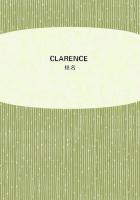This custom of cheptel aided in breaking the bonds which united the members of the same tribe, to substitute feudalvassalage in their place. The free man accepted cattle, even from a chief belonging to another tribe, and so became hisvassal. A peasant who had grown rich, a bo-aire , also granted cattle in cheptel . The bo-aires , in their turn, and even thechiefs, accepted cattle from lords richer than themselves, and there were thus constituted new groups, consisting of lord andvassals, distinct from the primitive group, composed of the chief and his clan. Moreover the acceptance of cattle had thesame effects as the commendatio elsewhere, and so the feudal system was established in Ireland in consequence of a natural,indigenous evolution, based on the system of cheptel . This is so true that in the Brehon Laws, the notion of feudaldependence is translated by this expression: "he has received cattle in cheptel ." They represent the king of Erin havingreceived cattle from the Emperor in this way.
We will now see how the chief of the clan, to increase his power, took advantage of the vaguely defined rights which he wasrecognized as having over the waste lands of the tribe. We see in the Brehon Laws, that there were at this time in Ireland avery numerous class of men, who, having for one reason or another broken the bonds attaching them to their clan, foundthemselves classless, wanderers, and fugitives, with no fixed place in a society entirely divided into closed corporations orfamily communities. These men were called fuidhirs . Caesar also notices the existence of a considerable number ofmiserable, ruined men in Gaul, who surrendered themselves to a master to obtain his protection. (10) In Germanic countries,particularly Switzerland, where the commune gives no rights to the mere inhabitants, we also find Heimatlosen , or peoplewithout a country. The same class exists in Russia. As the community is responsible for the crimes and violence of itsmembers, it is to its advantage to expel all those who are guilty of such offences. The Book of Aicill , one of the BrehonTracts , even shews the steps taken to effect this expulsion. These outlaws found themselves destitute of resources, for theyhad no longer any land to cultivate, and agriculture was almost the only regular means of existence. It was to the interest ofthe chief of another clan to grant them land on the communal domain, for certain payments. By this means he increased alikehis revenues and his influence. The fuidhirs , having no rights of their own, were entirely dependent upon him. During thecenturies of trouble and disorder which Ireland passed through in the middle ages, the number of fuidhirs would naturallyincrease continually. They gradually encroached upon the land belonging to the freemen of the tribe, that was yet undisposedof; and the latter were consequently impoverished because they could no longer keep so much cattle. Thus, the chief, on theone hand, became more powerful, while his old equals, on the other hand, were relatively descending in the social scale. Theinequality continually became more and more marked: the feudal lord rose above the class of cultivators, and they fell intoentire dependence upon him. As the lord constantly had arms in his hands, either for war, for the chase, or for martialexercises, while the peasants abandoned the use of them, he acquired over the peasants the irresistible authority given byforce; and so he became their lord, and they his vassals.
There were two classes of fuidhirs , the saer and daer fuidhirs . The one cultivated the waste lands granted them by the lord,and paid him a rent in kind determined by his pleasure; they also seem to have lived in organized family communities, of thetype generally in force. The others were in a state of domestic slavery or serfdom; they did all the work of the manor,cultivated the lord's domain, and guarded his herds. English writers of the sixteenth and seventeenth centuries, such asEdmund Spenser and Sir John Davis, depict the miserable condition of the tenants oppressed by the landlords in colours thatexactly recall the position and grievances of the small tenants-at-will in Ireland at the present day. Sir H. Maine is of opinionthat we must look back to the fuidhirs for the origin of the deplorable relations between landlord and tenant, which MrGladstone endeavoured to remedy by special legislation.
We see how inequality was introduced almost everywhere. Yet, just as in certain isolated districts, community of arable landwith periodic partition has been maintained to our own times, so in other districts the free organization of the mark hasmanaged to escape the influence of feudalism. Such was the case, for instance, in the Dutch provinces of Frisia and Drenthe,in the country of Ditmarschen, in the district of Delbück, and the forest cantons of Switzerland, that is to say, in regionswhere the pastoral system was maintained, which required no hands for the cultivation of the soil, and therefore did notnecessitate the introduction of the corvée , as in the agricultural districts. The Ditmarschen district, in Holstein, was peopledby groups of families from Frisia and Saxony. They formed four "marches," each governed by twelve councillors elected bythe inhabitants. These four marches were united by a federal bond. The affairs of the federation were managed by a councilcomposed of forty-eight "councillors of the marches." Charlemagne formed the country into a gau or district, called communitas terrae thetmarsiae : it was nominally subject to the authority of the bishop of Bremen, but the bailiff of thebishop exercised no actual power. The forty-eight councillors governed the country, which formed an independent republic.













